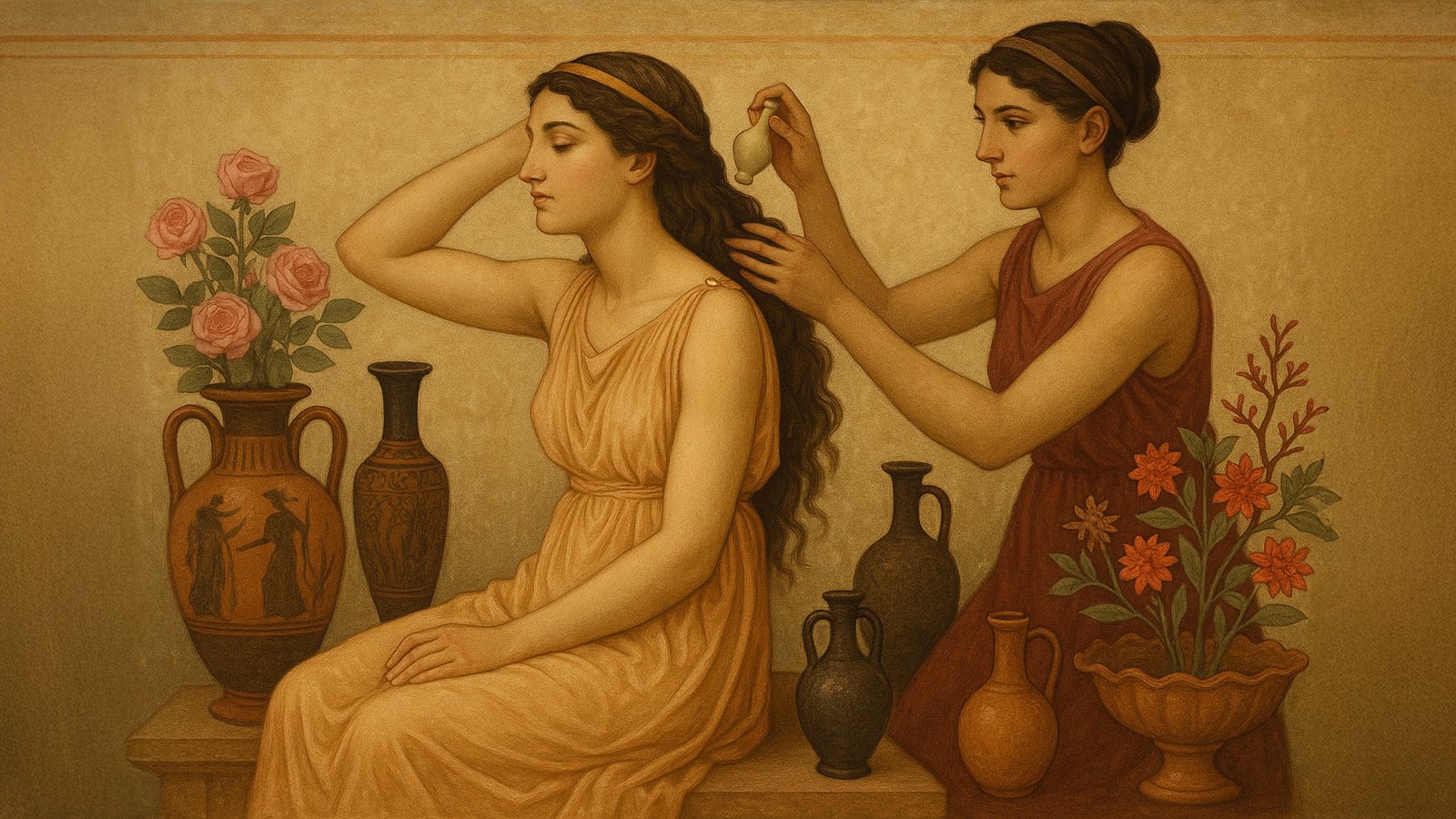Ancient Greek Daily Life Hygiene: Oils, Strigils and Social Baths
Ancient Greek daily life hygiene was a curious blend of soapless scrubbing, perfumed oils, and communal splashing about that would raise eyebrows in a modern bathroom showroom. For a civilisation that gave the world philosophy, democracy, and theatre, their approach to cleanliness was more about scraping and scenting than lathering and rinsing.
Imagine starting your day not with a shower, but with a good rubdown using olive oil. The Greeks would smear it over their skin, not for moisturising, but because oil trapped dirt and sweat. Then came the strigil, a curved bronze scraper that removed the oil along with everything it had collected. It was efficient in a way, though perhaps not the most glamorous image—more like peeling a carrot than pampering oneself. Archaeological digs across Greece, particularly in sites like Olympia and Athens, have unearthed dozens of strigils, many decorated with fine engravings. Some were made of bronze, others even of silver, suggesting hygiene could also be a display of wealth.
Water was, of course, part of the equation, but baths in Ancient Greece weren’t always private. While wealthy households might have small bathing rooms with basins, ordinary citizens often turned to public facilities. These communal baths were built near gymnasia, places not only for physical training but also for philosophical debate. Herodotus once remarked that cleanliness was a mark of civilised living, and the Greeks seemed to embody that ethos in their gymnasium culture. Picture a mix between a gym changing room and a coffee shop, except with more naked philosophers wandering around arguing about virtue. Excavations in places like Gortys on Crete and Delos reveal elaborate bathhouses with terracotta pipes and heated floors, showing that bathing was taken seriously, even in provincial towns.
Perfume played its part too. The Greeks adored scented oils—rose, myrrh, and cinnamon were popular favourites. They believed a fragrant body was a sign of civilisation, even if your actual armpits hadn’t seen much water that week. Wealthy citizens went as far as employing slaves to carry their bottles of oils and apply them on command, making personal hygiene both a performance and a privilege. Archaeologists have uncovered pottery vessels known as aryballoi—small round flasks often decorated with geometric or mythological motifs—used to carry these oils. Some aryballoi have been found in athletes’ graves, highlighting how central scented oil was to personal identity.
Dental hygiene was another matter. Toothbrushes weren’t yet in fashion, but the Greeks chewed aromatic twigs or rinsed with wine. Yes, wine as mouthwash. It sounds extravagant until you realise it doubled as disinfectant. Hippocrates, often called the father of medicine, even recommended a mixture of vinegar, salt, and alum to strengthen gums. Of course, this didn’t prevent the inevitable dental disasters, as revealed by skeletal remains showing worn teeth and cavities, but at least their breath smelled pleasantly Bacchic.
Clothes, too, were part of hygiene. Linen chitons and woollen himations weren’t washed with modern detergents but with alkaline substances like ashes or clay mixed with water. Laundry was often beaten on stones, rinsed, and dried in the sun, leaving garments fresh-ish, though perhaps a bit scratchy. Archaeological residues from wash basins in Olynthus and Pompeii (later under Roman influence) confirm the widespread use of fullers’ earth and soda ash in laundering.
What stands out most is how closely tied hygiene was to Greek concepts of balance, beauty, and public life. To keep the body oiled, perfumed, and scraped was to honour the gods, respect oneself, and present a civilised front to the polis. Cleanliness was never just about the body; it was about the soul’s reflection in a polished, scented exterior. Plato himself, though prone to lofty ideals, noted that gymnasia were vital not only for training the body but also for refining civic character. A sweaty, unwashed body, in contrast, could be seen as a sign of barbarism.
Hygiene even crept into religion. Ritual washing was required before entering temples, with basins of water known as perirrhanteria placed outside sanctuaries. Archaeological remains of these marble basins can be found at Delphi and Eleusis. Purification was both literal and symbolic: one could not pray to Athena with grubby hands.
So next time you stand under a hot shower, surrounded by shower gels promising tropical waterfalls and mystical spa experiences, spare a thought for the Ancient Greeks. They didn’t have eucalyptus body wash, but they did have olive oil, strigils, perirrhanteria, aryballoi, and the firm belief that a well-scented body and a sharpened debate could carry you through the day. Their legacy lives on in our obsession with balance between body and mind, even if we’ve swapped the scraper for soap and the gymnasium debate for a podcast on Bluetooth headphones.
